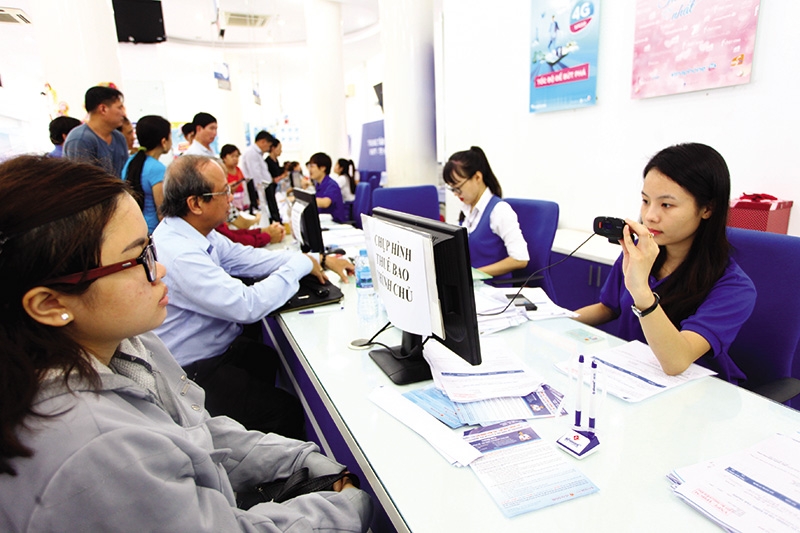New divestment lists to encourage action
 |
| The divestment schedules of many state-owned enterprises have been delayed in recent times, which has required the government to act in order to improve the situation |
Last week, the Ministry of Planning and Investment released a new list of state-owned enterprises (SOEs) that will be put up for equitisation and state withdrawals. The 93 SOEs on the list are expected to finalise their sales by the end of 2020, including major names such as banking giant Agribank, telecommunication firm VNPT, food processor Vinafood 1, and mineral and coal titan Vinacomin.
At the same time, the State Capital Investment Corporation also issued the names of 108 SOEs that it hopes to sell this year, many of them delayed from previous years. Notable companies include Bao Minh Insurance, oil maker Vocarimex, drugmaker Ladophar, constructor Licogi, and book seller Savina.
It is hoped the lists will drum up attention on the SOEs, after the market went through a lull in the first half of 2019. Market conditions were not supportive, marked by strong volatilities in the VN-Index and negative external forces such as the ongoing US-China trade war, as well as regional uncertainties.
Investment banker Tuan Ngo admitted that soft market conditions in the first half of 2019 have made it difficult for his team to secure strong sales for SOEs. However, the broker remains optimistic about the pipeline for the rest of the year, including steady progress for Binh Dien Fertilizer JSC and construction firm Viglacera JSC.
“If the VN-Index stays between 950 and 1,000 points, then our firm has a 50-50 chance to organise one initial public offering and one equitisation within this year,” said Ngo.
 |
Other market observers pointed out that overseas investors are the most likely to follow industry leaders. Truong Hien Phuong, head of the Southern Vietnam branch of KIS Securities, told VIR that international investors want SOEs with a dominant market share and strong growth potential. Phuong believed that Vietnam would remain on the global deal map this year if these large-scale market debuts can take place.
To facilitate the sale of SOEs, the Ministry of Finance (MoF) has come up with new supportive rules in the first half of 2019. One is Circular No.21/2019/TT-BTC that provides a framework for book building, which took effect last month. The method, which gauges investor interest and purchase power prior to a transaction, is particularly helpful when it comes to major auctions that involve foreign investors.
Chairman of the Hanoi Securities Exchange Nguyen Thanh Long said, “Compared to other methods, book building offers the benefit of determining the market interest in an issuer. As a result, we can balance the needs and wants of both investors and the SOEs, raising the efficiency level of state divestments and first public sales of the enterprises. We can say that this also reduces the cost of raising capital for the firms, as they don’t have to hold multiple transactions.”
From May onwards, overseas investors are also allowed to make a deposit in foreign currencies when they sign up for SOE auctions, according to Circular No.03/2019/TT-NHNN. This applies to both first-time sales of SOEs and state divestments, and the transaction can be carried out at all approved banks.
The MoF also hosted an investment forum in London a few weeks ago, aiming to tell the Vietnam story to major European investors. The key message, according to MoF officials, is that Vietnam will push the efficiency and corporate governance level at SOEs, turning them into attractive targets for foreign investment funds and strategic partners.
Although experts appreciate the bold efforts by the government to push SOE sales, they are also worried that other factors might still hold firms back. Notably, many names on the equitisation list have lagged behind their original schedule, citing difficulties in land clearance, company valuation, or outstanding debts.
Moreover, most of the SOEs operate across multiple business sectors, spanning different provinces across Vietnam, which complicates the land valuation procedure. Previous scandals on the improper use of land, such as Vinafilm in Hanoi and Sabeco in Ho Chi Minh City, also require SOEs to be more careful with how they evaluate the massive amounts of land under their control. Specifically, new regulations state that SOEs must now take into account their land use rights, preventing any under-valuation of the company.
“According to new rules by the MoF, 22 of our subsidiaries have to reassess 248 land plots in 25 provinces around the country. This is why our equitisation plan has been falling behind schedule,” said Bui Thi Thanh Tam, CEO of Vinafood 1.
In a similar manner, Agribank board member Nguyen Tuyet Duong is also worried about delays in land clearing, as the bank operates in 63 provinces in Vietnam with different branches and offices. According to Duong, even if Agribank finalises its land ownership issues in July, the equitisation plan will still be delayed until early 2020.
Other bottlenecks include major lawsuits, as in the case of telecommunications giant Mobifone and its overpriced merger deal with AVG. SOEs are also expected to clear their outstanding tax issues before going on sale, avoiding a fate similar to Sabeco in 2018 when the brewery was accused of dodging $315 million in taxes after it sold half of its shares to Thai Beverage.
A number of other problems, according to experts, involve interest groups and the reluctance of SOE leaders to let go of their lucrative business. They stressed the transparency of Vietnam’s equitisation process must be improved, so that foreign investors feel protected when they choose to take part in an SOE auction in the country. Vietnam must also make sure that under-the-table agreements will not take place, because they put the transaction value at a significant discount to the SOE’s real worth.
“The lack of transparency, publicity, and information make SOE sales a bit of a muddle at the moment,” said Kevin Snowball, portfolio manager at PXP Asset Management. The investor also hoped that funds will be given more time to consider the valuation of a share sale, as well as more public information.
What the stars mean:
★ Poor ★ ★ Promising ★★★ Good ★★★★ Very good ★★★★★ Exceptional
 Tag:
Tag:
Related Contents
Latest News
More News
- Cashless payments hit 28 times GDP in 2025 (February 04, 2026 | 18:09)
- SSIAM and DBJ launch Japan Vietnam Capital Fund (February 04, 2026 | 15:57)
- Banks target stronger profits, credit growth in 2026 (February 04, 2026 | 15:43)
- Vietnam on path to investment-grade rating (February 03, 2026 | 13:07)
- Consumer finance sector posts sharp profit growth (February 03, 2026 | 13:05)
- Insurance market building the next chapter of protection (February 02, 2026 | 11:16)
- NAB Innovation Centre underscores Vietnam’s appeal for tech investment (January 30, 2026 | 11:16)
- Vietnam strengthens public debt management with World Bank and IMF (January 30, 2026 | 11:00)
- Corporate bond market poised for stronger growth cycle (January 28, 2026 | 17:13)
- Vietnam's IPO market on recovery trajectory (January 28, 2026 | 17:04)






















 Mobile Version
Mobile Version